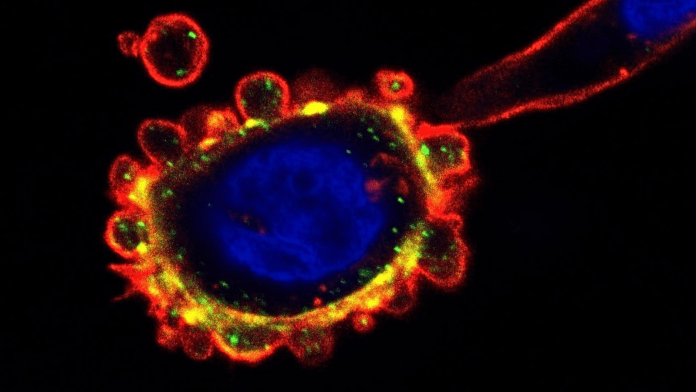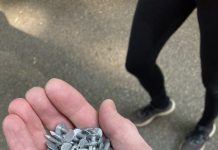A new study carried out in mice, led by Queen Mary University of London, has identified cells that drive the spread of pancreatic cancer and discovered a weakness in these cells that could be targeted using existing drugs. This offers a promising new approach for treating pancreatic cancer.
The research, published in Science Advances and funded by Barts Charity and Cancer Research UK, found that many patients’ pancreatic cancer contains cells called amoeboid cells. These are aggressive, invasive and fast-moving cells that weaken the immune system. These cells have previously been identified in other cancers, such as melanoma, breast, liver and prostate cancer, and have been linked with poor survival rates. This is the first time that they have been found in pancreatic cancer.
Crucially, the new study discovered amoeboid cells in pancreatic cancer produce high levels of a molecule called CD73, which drives their ability to spread and weaken the immune system. When blocking this molecule, the researchers reduced the spread of cancer to the liver and decreased the number of immune cells that supported the tumour.
The research looked at mice given anti-CD73 treatment over the short term (3 weeks) and long term where clinical endpoints were met (when an outcome that represents direct clinical benefit was achieved, such as survival, decreased pain, or the absence of disease). In the long-term group, anti-CD73 treatment reduced the incidence of cancerous tumours that spread to the liver from 66.6 per cent to 36.4 per cent.
While further tests would be needed involving humans to confirm the conclusions, the study suggests that blocking CD73 could be a promising approach for treating pancreatic cancer and the spread of it, especially considering that drugs blocking CD73 have already been developed and are being tested in clinical trials for various types of cancer.
The amoeboid cells were present in both late and early-stage pancreatic cancer. This opens up a new possible avenue of treatment in blocking CD73 early in the disease and reducing the aggressive nature of these cells and the damage they cause in the body.
Professor Victoria Sanz-Moreno, Professor of Cancer Cell Biology at Queen Mary University of London, said:
“While the results would need to be replicated in humans, they are very promising in highlighting a potential way of treating the spread of one of the most aggressive and poorly survived cancers.
“More than 10,000 people are diagnosed with pancreatic cancer in the UK every year, so finding a way to improve its extremely low survival rate even by a little could save many years of human life.
“Pancreatic cancer remains one of the deadliest cancers and current treatments are not working well. To improve these, we urgently need to understand the disease better.”







